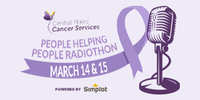The province has come out with a list of communities and municipalities that are lagging behind when it comes to COVID-19 vaccines.
As of Wednesday, 34 per cent of Manitoba adults have been vaccinated. However, several communities in Southern Health fall well below that, including Stanley at 6.1 per cent, Winkler at 13.6 per cent and Hanover at 14.9 per cent. By comparison, 41 per cent of Portagers 18 and over have received a first dose, while that number sits at 35 per cent for rural Portage.
"Overall, most of the lower uptake has been in either certain parts of Winnipeg or in Southern Health," says Dr. Joss Reimer with Manitoba's Vaccine Implementation Task Force. "So it does seem that there are some consistent concerns and/or barriers to access that are appearing in those two regional health authorities."
Dr. Reimer says the case for Winnipeg is that there are barriers with respect to access. For example, she says it could be quite stressful for a homeless person who considers attending a supersite. She notes while staff will welcome that individual, it may still be a scary thought for that person to book the appointment and then make the trek.
But, with respect to Southern Health, Dr. Reimer says it appears this is less about access and more about concerns surrounding the vaccine. That is because the two communities with the lowest percentages are geographically located very close to the Morden supersite.
"With Stanley actually being right around Morden and then Winkler being about a fifteen-minute drive, it does appear more to be concerns around the vaccine as opposed to anything around an inability to access the site," she says. "So we need to connect with these communities."
To try and boost those percentages, the province has a number of ideas, including reaching out to religious and civic leaders in key regions and working with ethnocultural and newcomer-serving organizations.
According to Dr. Reimer, health officials are not terribly surprised by these results. She notes historically, these locations have lower percentages of residents who get the flu shot or even childhood vaccines.
"This is something that public health has been working on for a long time to improve confidence in the vaccine in those areas," says Dr. Reimer. "Right now it's quite a bit more urgent than it has been in the past because we want to protect the members of our community that live in Stanley, in Winkler, in Hanover. We don't want to see ongoing illness and hospitalization and death in those communities."
Dr. Reimer says it is urgent for the province to reach out and determine what the concerns are and to connect with the trusted voices in those communities.
"We know that people are influenced by the people around them," she says. "And if someone that you trust and you look up to gives you advice one way or another, you are often going to take that to heart and that's going to play a large role in your decision making. So we want to get those trusted leaders on board and help so that they can inform the process on how best to connect with the communities."
Dr. Reimer acknowledges that there is somewhat of an artificial discrepancy in these numbers because eligibility is not equal across the board. However, she notes far more than six per cent of residents in Stanley are currently eligible.












